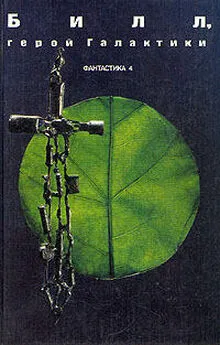Анетт Асп - Круто! Как подсознательное стремление выделиться правит экономикой и формирует облик нашего мира
- Название:Круто! Как подсознательное стремление выделиться правит экономикой и формирует облик нашего мира
- Автор:
- Жанр:
- Издательство:Альпина Паблишер
- Год:2016
- Город:Москва
- ISBN:978-5-9614-4152-9
- Рейтинг:
- Избранное:Добавить в избранное
-
Отзывы:
-
Ваша оценка:
Анетт Асп - Круто! Как подсознательное стремление выделиться правит экономикой и формирует облик нашего мира краткое содержание
Авторы этой книги провели глобальное исследование, обобщили новейшие данные в области нейронауки, экономики, эволюционной биологии и выяснили, почему мы просто обречены покупать и почему стремимся выглядеть лучше остальных. По мнению авторов, невозможно остаться за пределами этого мира товаров, символов и сигналов. Даже те, кто называет себя «антипотребителями», в конечном итоге оказываются просто альтернативными потребителями.
Что происходит у нас в голове, когда мы оказываемся в магазине? Какие три силы борются в нас при выборе того или иного товара? Как «крутое» потребление стало главной движущей силой экономики и как оно влияет на мир? Об этом рассказывают профессор философии и когнитивной науки Стивен Кварц и политолог, специалист в области PR Анетт Асп.
Круто! Как подсознательное стремление выделиться правит экономикой и формирует облик нашего мира - читать онлайн бесплатно ознакомительный отрывок
Интервал:
Закладка:
Sapolsky, Robert M. 2004. “Social status and health in humans and other animals.” Annual Review of Anthropology 33:393–418.
187
Marmot, Michael. 2004. T he Status Syndrome: How Social Standing Affects Our Health and Longevity. New York: Times Books.
188
Chiao, Joan Y., Reginald B. Adams Jr., and Peter U. Tse. 2008. “Knowing who’s boss: fMRI and ERP investigations of social dominance perception.” Group Process and Intergroup Relations 11:201–14.
189
Kishida, Kenneth T., Dongni Yang, Karen Hunter Quartz, Steven R. Quartz, and P. Read Montague. 2012. “Implicit signals in small group settings and their impact on the expression of cognitive capacity and associated brain responses.” Philosophical Transactions of the Royal Society of London B: Biological Sciences 367:704–16.
190
Yee, Vivian. 2013. “Grouping Students by Ability Regains Favor in Classroom.” The New York Times , June 9, www.nytimes.com/2013/06/10/education/grouping-students-by-ability-regains-favor-with-educators.html?pagewanted=all&_r=0.
191
Godoy et al., 2007, “Signaling by consumption.”
192
См. примечание 1 к главе 1.
193
Smith, Eric Alden, Monique Borgerhoff Mulder, Samuel Bowles, Michael Gurven, Tom Hertz, and Mary K. Shenk. 2010. “Production systems, inheritance, and in equal ity in premodern societies.” Current Anthropology 51:85–94; Bowles, Samuel, Eric Alden Smith, and Monique Borgerhoff Mulder. 2010. “The emergence and persistence of inequality in premodern societies.” Current Anthropology 51:7–17.
194
Smith, E. A., et al., 2010, “Production systems, inheritance, and inequality.”
195
Boehm, 2012, “Ancestral hierarchy and conflict.”
196
Ribeiro, A. 1986. Dress and Morality . London: Holmes & Meier.
197
Ribeiro, A. 1986. Dress and Morality . London: Holmes & Meier.
198
Frank, R. H., 2011, Darwin Economy ; Frank, 1999, Luxury Fever .
199
Kaburu, Stefano S. K., Sana Inoue, and Nicholas E. Newton-Fisher. 2013. “Death of the alpha: Within-community lethal violence among chimpanzees of the Mahale Mountains National Park.” American Journal of Primatology 75:789–97.
200
Mitani, John C. 2009. “Cooperation and competition in chimpanzees: Current understanding and future challenges.” Evolutionary Anthropology 18:215–27.
201
Mitani, 2009. “Cooperation and competition.”
202
Hey, Jody. 2010. “The divergence of chimpanzee species and subspecies as revealed in multipopulation isolation-with-migration analyses.” Molecular Biology and Evolution 27:921–33.
203
Hare, Brian, Victoria Wobber, and Richard Wrangham. 2012. “The selfdomestication hypothesis: Evolution of bonobo psychology is due to selection against aggression.” Animal Behaviour 83:573–85.
204
Watts, David P., et al. 2012. “Diet of chimpanzees ( Pan troglodytes schweinfurthii ) at Ngogo, Kibale National Park, Uganda, 1. Diet composition and diversity.” American Journal of Primatology 74:114–29.
205
Robert G. Franciscus, et al. 2013. “Anatomically Modern Humans as a ‘Selfdomesticated’ Species: Insights from Ancestral Wolves and Descendant Dogs.” The 82nd Annual Meeting of the American Association of Physical Anthropologists.
206
Вопрос о войнах на раннем развитии человечества представляется спорным. См.: Bowles, Samuel. 2009. “Did warfare among ancestral hunter-gatherers affect the evolution of human social behaviors?” Science 324:1293–98; Fry, Douglas P., and Patrik Soderberg. 2013. “Lethal aggression in mobile forager bands and implications for the origins of war.” Science 341:270–73.
207
Henrich, Joseph, Robert Boyd, and Peter J. Richerson. 2012. “The puzzle of monogamous marriage.” Philosophical Transactions of the Royal Society of London B: Biological Sciences 367:657–69.
208
Gray, Peter B. 2011. “The descent of a man’s testosterone.” Proceedings of the National Academy of Sciences of the United States of America 108:16141–42.
209
Hector, Andy, and Rowan Hooper. 2002. “Ecology. Darwin and the first ecological experiment.” Science 295:639–40.
210
Losos, Jonathan B. 2010. “Adaptive Radiation, Ecological Opportunity, and Evolutionary Determinism.” American Society of Naturalists E. O. Wilson Award Address. The American Naturalist 175:623–39.
211
См., например: Rainey, Paul B., and Michael Travisano. 1998. “Adaptive radiation in a heterogeneous environment.” Nature 394:69–72; and Brockhurst, Michael, Nick Colegrave, David J. Hodgson, and Angus Buckling. 2007. “Niche occupation limits adaptive radiation in experimental microcosms.” PloS One 2: e193.
212
Sulloway, Frank J. 1996. Born to Rebel: Birth Order, Family Dynamics, and Creative Lives . New York: Pantheon.
213
Plomin, R., and D. Daniels. 1987. “Why are children in the same family so different from one another?” Behavioral and Brain Sciences 10:1–60.
214
“Eli Manning Talking Some Hoops and Some Pigskin.” 2014. Fox Sports Radio , June 11. www.foxsportsradio.com/onair/jay-mohr-sports-50067/eli-manning-talking-some-hoops-and-12451118/.
215
Sulloway, 1996. Born to Rebel .
216
Hsu, Ming, Cedric Anen, and Steven R. Quartz. 2008. “The right and the good: Distributive justice and neural encoding of equity and efficiency.” Science 320:1092–95.
217
Nozick, Robert. 1974. Anarchy, State, and Utopia . New York: Basic Books. p. 245.
218
Nozick, 1974, Anarchy, State, and Utopia , p. 246.
219
Epstein, David. 2013. The Sports Gene: Inside the Science of Extraordinary Athletic Performance. New York: Penguin.
220
Acemoglu, Daron, and James. A. Robinson. 2012. Why Nations Fail: The Origins of Power, Prosperity, and Poverty . New York: Crown Business.
221
Inglehart, Ronald, and Wayne E. Baker. 2000. “Modernization, cultural change, and the persistence of traditional values.” American Sociological Review 65:19–51.
222
Jost et al., 2012, “Why men (and women) do and don’t rebel.”
223
Lee, I–Ching, F. Pratto, and B. T. Johnson. 2011. “Intergroup consensus/disagreement in support of group-based hierarchy: An examination of sociostructural and psycho-cultural factors.” Psychological Bulletin 137:1029–64.
224
Barker, J. L., P. Barclay, and H. K. Reeve. 2012. “Within-group competition reduces cooperation and payoffs in human groups.” Behavioral Ecology 23:735–41.
225
Henrich, Joseph, Robert Boyd, and Peter J. Richerson. 2012. “The puzzle of monogamous marriage.” Philosophical Transactions of the Royal Society of London B: Biological Sciences 367:657–69.
226
Sherif, M., O. J. Harvey, B. J. White, W. R. Hood, and C. W. Sherif. 1954/1961. The Robbers Cave Experiment: Intergroup Conflict and Cooperation. Norman, OK: The University Book Exchange. pp. 15–18.
227
Van Vugt, Mark, David De Cremer, and Dirk P. Janssen. 2007. “Gender differences in cooperation and competition: The male-warrior hypothesis.” Psychological Science 18:19–23.
228
Petersen, Roger. 2012. “Identity, Rationality, and Emotion in the Processes of State Disintegration and Reconstruction.” In Kanchan Chandra, ed. Constructivist Theories of Ethnic Politics . Oxford, UK: Oxford University Press, pp. 387–421.
229
Имеется интересная связь между этим открытием и утверждением Роберта Франка о том, что люди более склонны сравнивать себя с теми, кто находится на близких к ним ступенях статусной иерархии. Например, Франк часто перефразирует Бертрана Рассела, который отмечал, что бродяга не завидует миллионеру. Он заведует другому бродяге, у которого имеется чуть больше, чем у него самого. См.: Frank, R. H., 1999, Luxury Fever .
230
Примеры того времени: дело Браун против Образовательного совета 1954 г.; Акты о гражданских правах 1957, 1964 и 1968; 24-я поправка 1964; Закон об избирательном праве 1964; Закон о справедливом решении жилищных вопросов и Закон о равных правах при найме на работу 1971.
231
Welzel and Inglehart, 2010, “Agency, values, and well-being.”
232
Inglehart et al., 2008, “Development, freedom, and rising happiness.”
233
Gair, 2007, American Counterculture .
234
Исчерпывающий обзор этих проблем можно найти в: Oakes, Michael. 2012. “Measuring Socioeconomic Status.” NIH Office of Behavioral and Social Science Research. E-source: Behavioral and Social Sciences Research (online textbook). www.esourceresearch.org/tabid/767/default.aspx.www.
235
Norton, Michael I., and Dan Ariely. 2011. “Building a better America – one wealth quintile at a time.” Perspectives on Psychological Science 6:9–12.
236
Collins, Randall. 2000. “Situational stratification: A micro-macro theory of inequality.” Sociological Theory 18:17–43.
237
Goffman, Erving. 1967. Interaction Ritual: Essays on Face-to-Face Behavior . New York: Doubleday.
238
Collins, 2000, “Situational stratification.”
239
Wolff, L.S., D. Acevedo-Garcia, S. V. Subramanian, D. Weber, and I. Kawachi. 2010. “Subjective social status, a new measure in health disparities research: Do race/ethnicity and choice of referent group matter?” Journal of Health Psychology 15:560–74; Nobles, Jenna, Miranda Ritterman Weintraub, and Nancy E. Adler. 2013. “Subjective socioeconomic status and health: Relationships reconsidered.” Social Science & Medicine 82:58–66.
Читать дальшеИнтервал:
Закладка:










